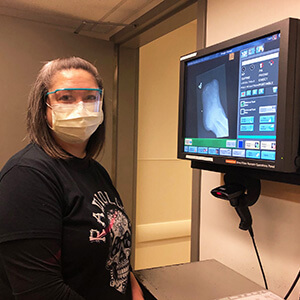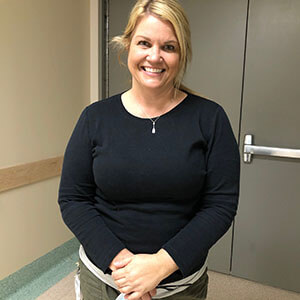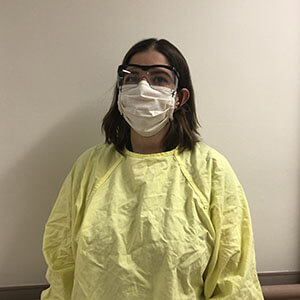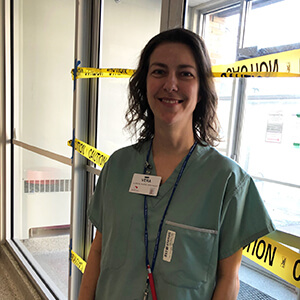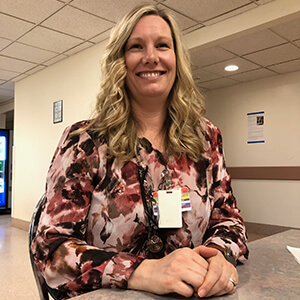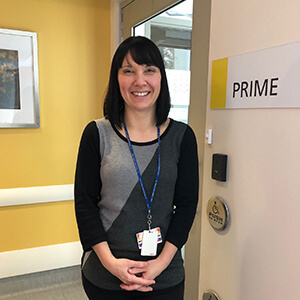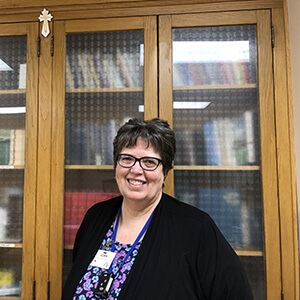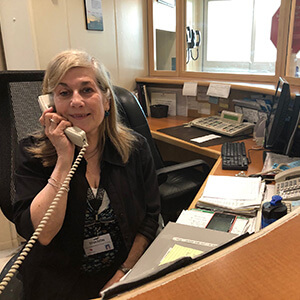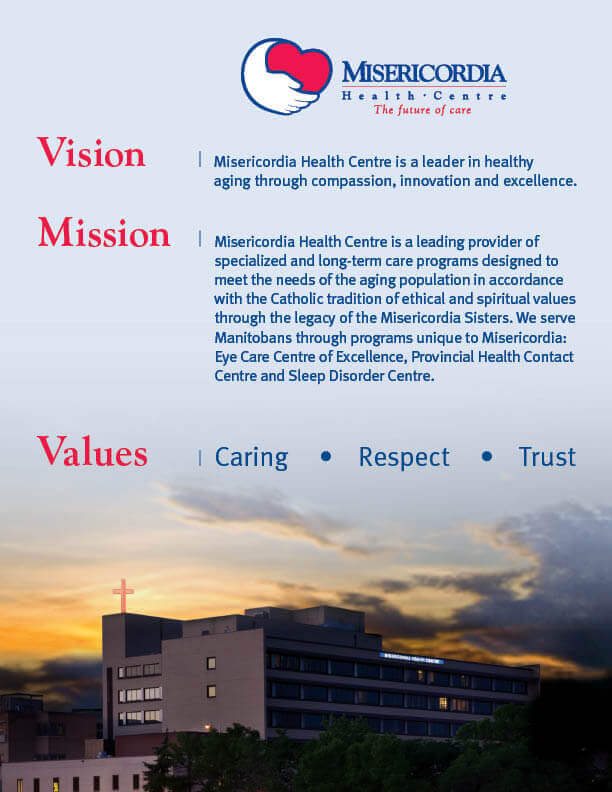Chero Belle Laqui, Mailroom & Environmental Services
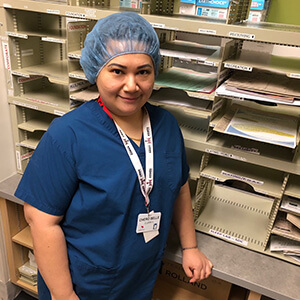
The COVID-19 pandemic is changing our world and health-care professionals are on the front lines.
“Positivity is also contagious,” says Chero Belle Laqui, discussing COVID-19. “This is a serious matter, but it’s important to stay positive.”
The mailroom clerk and environmental steward is taking the COVID-19 precautions seriously – at work, and at home: her husband works in Misericordia’s Sleep Disorder Centre and their daughter who lives with them works at HSC. They all follow the same disinfection protocols at home that they do at work.
Chero Belle understands the necessity of social distancing, just seeing her other daughter, a freelance make-up artist, through windows and FaceTiming. Lots of FaceTiming.
Chero Belle is missing working together in their lash extension business but, following her own advice, remains positive.
“Being well-educated is better than fear,” says Chero Belle. “This too shall pass. I’m thankful everyone in my family is healthy.”
For now, she keeps her followers up-to-date as @CutiePork on Instagram and often tags Misericordia Health Centre.
“Most people just call me cute, even at work. ‘Hey, cute!’ they say.”
Keep COVID-19 informed by visiting: covid19manitoba.ca
#mhcfamily #healthcareheroesMB #COVID19

